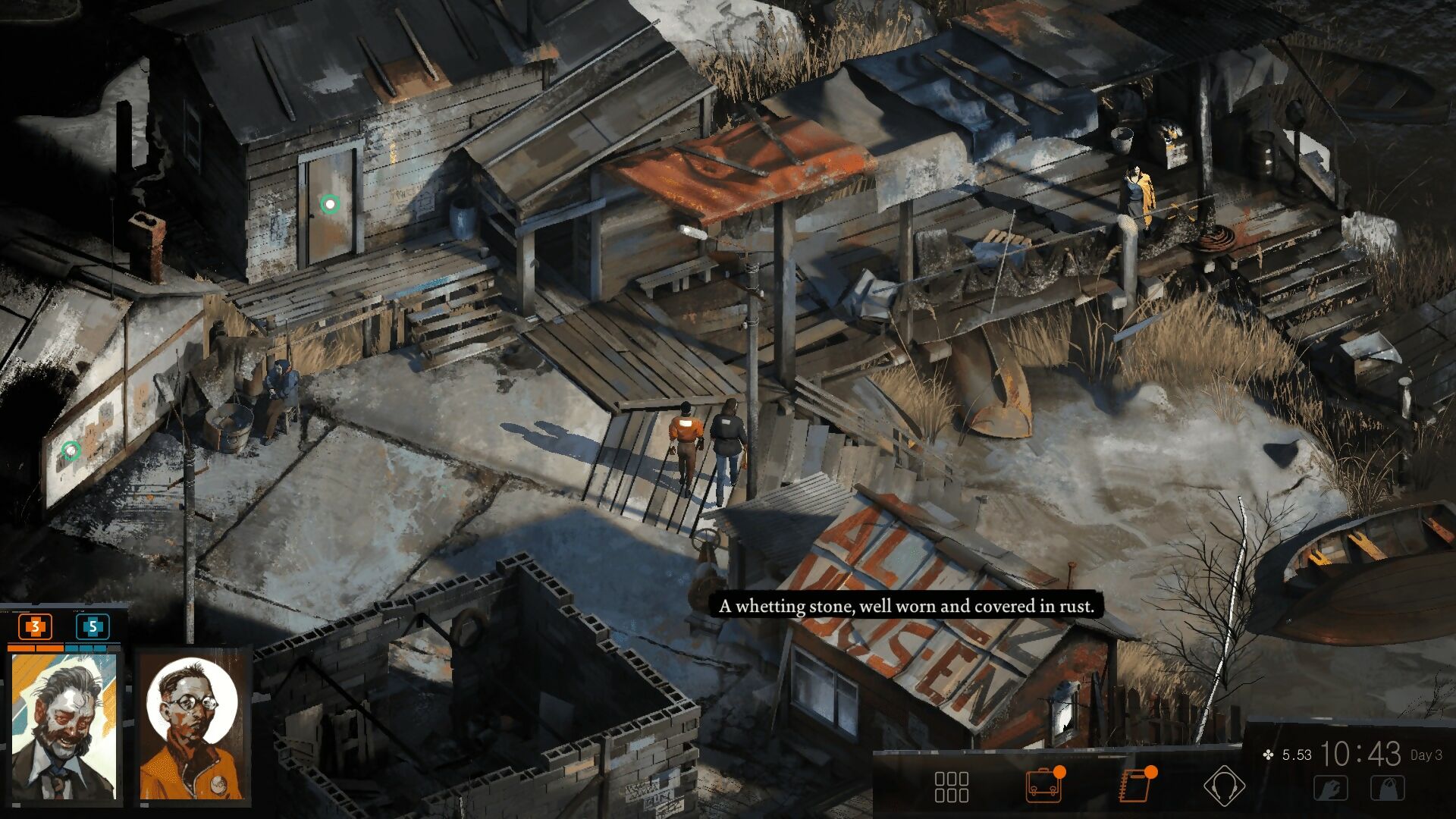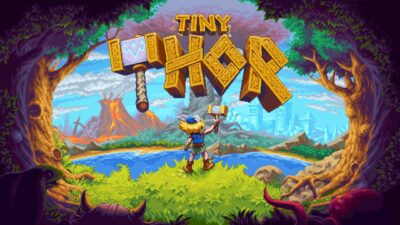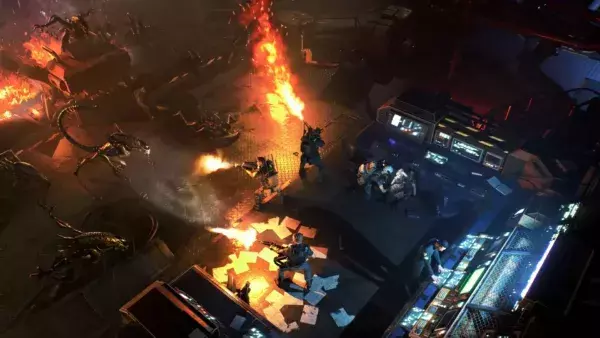
Disco Elysium – yeah, it’s fine we suppose. Who are we kidding? It’s one of the best, most intricate RPGs of the past decade. Our review…
To call Disco Elysium an RPG murder-mystery wouldn’t be incorrect, but it would somewhat undersell the breadth of what’s going on in a game where the player character’s brain gets into arguments with itself, the skills you’ve selected have the potential to send him into revelatory pseudo-mystical reverie, and his tie periodically implores him to grab a drink and get messed up.
The game opens with your protagonist awakening in a trashed hostel room after a multi-day bender, with no memory of who he is or what’s led him to this low point.
You quickly discover that you’re a detective (albeit a rather unconventional one) and that, out the back, there’s a body hanging from a tree. Your job is to find out who killed them. You’ll probably want to find out who you are along the way, too.
Defining how you go about solving these mysteries are your skills. Having skills in an RPG is as established as butter on bread, but the way these skills have been implemented, well, that’s something else.
The function of each skill in Disco Elysium is complemented by a de facto character whose voice will become more prominent in your detective’s mind as you sink more points into them. Inland Empire can roughly be described as intuition, informing your character when it picks up on a bad feeling or prompting you to follow a particular conversation topic or route on the basis of a hunch.
When it speaks, it sounds like a mystic, having an affinity for grandiose proclamations about the universe and paranormal connections. Logic determines your detective’s ability to spot inconsistencies and, as you might expect, is cold, detached, and a little arrogant.
The way you balance these skills has a huge impact on the way you experience the game. Skill checks mean you will inevitably have to follow different paths to pry information from other characters, or access new areas, depending on where you’ve invested your points.
The dialogue you see will be different depending on whether you’ve built an empathetic detective sensitive to picking up on people’s feelings, or a brute who prefers to intimidate, with the voices of those corresponding skills coming to the fore of your detective’s mind, while the proclivities of the skills you’ve neglected tend to stay hidden beneath the surface.
How this myriad of potential voices has been woven into something that’s not only coherent, but unfailingly compelling, I can’t begin to imagine.
This gives the game a huge degree of variability. Whether it’s the skills you invest in, the conversation options you choose, the drugs you do or don’t consume, or the side quests you complete, the possibilities feel unfathomably huge, and your choices will matter.
This works to the game’s benefit, but there are plenty of other games that respond well to player choice. That alone is not what makes this game special. Choices here are more than keys with the potential to open or close quest lines; they radically change the texture of the game. Just walking through the city can be dramatically different, depending on what you’ve upgraded.
I began pumping points into ‘perception’ – having the effect of your detective spotting more stuff around him – and ‘shivers’ – which helps you to “hear the city” – about halfway through the game. Suddenly, the simple act of walking from one place to another felt more contemplative, and the city’s previously hidden secrets were revealed to me: impressionistic thoughts gave the place context, while ghosts of past traumas drifted into my detective’s mind.
Choices in Disco Elysium aren’t just an expression of player agency. They’re used to make you ruminate on how different thoughts, ideas, or modes of engaging with the world can both reveal and distort it. Early on, you can ask a lorry driver what he’s carrying in his van. In response, he’ll make what is clearly a joke about how his lorry is full of illegal contraband.
Your Authority skill jumps into action, insisting that you arrest this criminal immediately. This is a warning from the game that you can’t always trust what your skills tell you; it’s an amusing misunderstanding, and a comment on the paranoid mindset of those that wield power.
This is far from the only instance of your usually helpful skills muddying the waters – they will later start having disagreements about how you should handle situations, another example of what could have been a bog-standard RPG skill system being taken in all kinds of innovative directions.
Tonally, Disco Elysium is difficult to talk about, given the many permutations that define how you experience it. Deliberately surreal and irreverent in its early stages, the game encourages you to embrace the unusual: “You’re playing an oddball, it’s OK to pick the weird dialogue options,” it seems to say.
There are opportunities to continue in that vein, tilting the game towards being a kind of dark comedy, but Disco Elysium also gradually reveals another side, as a washed-up, alcoholic protagonist with a propensity for failure – who might initially be interpreted as a punchline – becomes a more complex, or even sympathetic, figure. This move happens often. Characters that, at first glance, might appear to be broad stroke archetypes gain an extra dimension, as the game starts to situate them in the context of its location’s history: the neglected district of Martinaise.
The game harbours a deeply cynical view of politics in its early stages, but later supplements its critique with a solidarity for the downtrodden that suggests some kind of hope for change. That the game is able to hold so much in tension – to be earnest, cynical, silly, contemplative, angry, sentimental, provocative, and more – speaks to just how rich and sophisticated it is.
I’ve never played a game quite like Disco Elysium, but I suspect I will again in the future, because its influence will be all over the games that follow in its wake. It really is that good.
Highlight
Supplementing Disco Elysium’s skill system is ‘the thought cabinet’. Thoughts unlocked during conversation can be slotted into your detective’s brain for him to ruminate on, sometimes at the expense of a stat debuff. After he’s finished contemplating it, you’ll usually get some kind of bonus.
Verdict: 94%
Offbeat, original, smart, and intricate, Disco Elysium starts strong and grows in your estimation by the hour.
Genre: RPG
Format: PC (tested)
Developer: ZA/UM
Publisher: ZA/UM
Price: £34
Release: Out now





